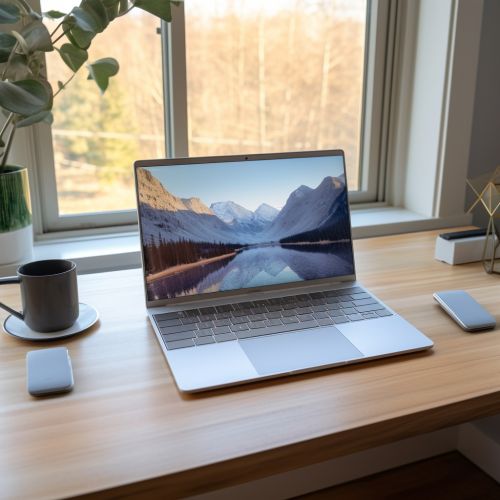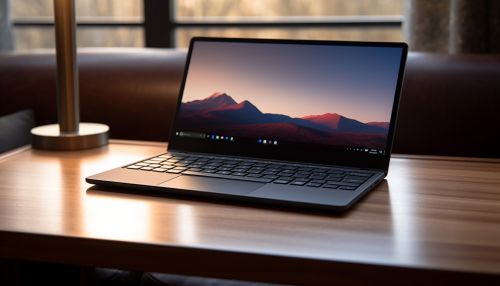Laptop
Overview
A laptop computer is a small, portable personal computer (PC) with a "clamshell" form factor, typically having a thin LCD or LED computer screen mounted on the inside of the upper lid of the clamshell and an alphanumeric keyboard on the inside of the lower lid. The clamshell is opened up to use the computer. Laptops are folded shut for transportation, and thus are suitable for mobile use.
History
The concept of a portable computer was suggested by Alan Kay at Xerox PARC in 1968. He envisioned a flat floor-standing machine that could be used to program and send data anywhere. The idea led to the development of the Dynabook, a prototype laptop that was designed for children to use for learning.
Design Elements
The design of laptops is primarily focused on portability, which includes size, weight, and battery life. Laptops are usually shaped like a large notebook with thicknesses between 0.7–1.5 inches (18–38 mm) and dimensions ranging from 10x8 inches (27x22cm, 13" display) to 15x11 inches (39x28cm, 17" display) and up.
Hardware
Laptops contain components that are similar to their desktop counterparts and perform the same functions, but are miniaturized and optimized for mobile use and efficient power consumption.
Software
Laptops run on different types of operating systems such as Windows, Linux, and macOS. The operating system manages the hardware resources, and provides the user with an interface to interact with the computer.
Types of Laptops
There are several types of laptops, including traditional laptops, 2-in-1 PCs, netbooks, rugged laptops and Chromebooks.
Performance
The performance of a laptop depends on its processor, RAM, storage, and graphics chip. High-end laptops often have more powerful processors, more RAM, and higher-resolution screens.
Battery Life
Battery life is a key issue for portable computers since power supply may be unavailable for extended periods when in transit.
Environmental Impact
Laptops, like all computers, have an impact on the environment during their lifecycle, which includes manufacturing, use, and disposal.
Future Trends
The future of laptops looks promising with advancements in technology such as foldable screens, AI technology, and improved battery life.
See Also


